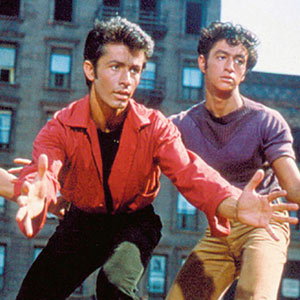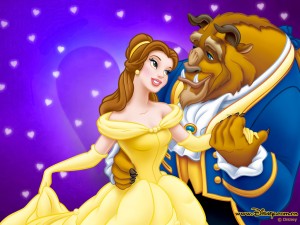Is “Vertigo” the Greatest Movie of All Time?
Posted on August 4, 2012 at 3:48 pm
Every ten years, the prestigious film journal Sight & Sound polls critics and film-makers on the greatest films of all time. Citizen Kane has led the list for decades, but this year it was toppled by Alfred Hitchcock’s Vertigo
. While I would vote for “Citizen Kane” if they offered me a ballot, I think it is a good idea to take a fresh look. The point of polls and lists is to start a discussion, not to end one. And the changing perceptions of the films on the list say more about our times than they do about the inherent, absolute merits of the film.
“Vertigo” stars James Stewart as a former cop impaired by a paralyzing fear of heights who is unable to save a woman he was hired to protect when she commits suicide by jumping from a bell tower. When he later meets another woman who strongly resembles the first (both played by Kim Novak), he becomes obsessed with making her over to re-create the woman who died.
http://www.youtube.com/watch?v=D0bV2gh4E7YThese results were released the same week that Tippi Hedren, who starred in Hitchcock’s “Marnie” and “The Birds,” said that he ruined her career but not her life, with obsessive, creepy, sexual harassment. A forthcoming HBO film, “The Girl” stars Toby Jones and Sienna Miller as Hitchcock and Hedren. These claims/revelations about what may have inspired or influenced the themes of obsession and fixation and repression in “Vertigo” and other Hitchcock films recontextualize the films as well.
Roger Ebert has some important insights about the list and the inherent limits of any reductionist attempt at ranking works of art.
What surprised me this year is–how little I was surprised. I believed a generational shift was taking place, and that as the critics I grew up with faded away, young blood would add new names to the list. Kieslowski, perhaps. Herzog. Fassbinder. Scorsese. Lynch. Wong Kar-Wai.
What has happened is the opposite. This year’s 846 voters looked further into the past. The most recent film in the critics’ top ten, as it has been for years, is Kubrick’s “2001: A Space Odyssey” (1968). The two new films are silent: Vertov’s “Man With a Movie Camera” (1929), and Dreyer’s “The Passion of Joan of Arc” (1928). Murnau’s great silent “Sunrise” (1927) is also on the list–three silents out of ten, and no Chaplin, Keaton or Eisenstein.
Why not more recent directors? To make the list, a director is punished if too many of his films are voted for. He needs an “official masterpiece.” With Buster Keaton that film used to be “The General,” but after the restoration of all of his films his votes have become scattered, I suspect, among “Sherlock Jr.,” “Steamboat Bill Jr.” and other treasures.
But his most important point is this: “let’s remember that all movie lists, even this most-respected one, are ultimately meaningless. Their tangible value is to provide movie lovers with viewing ideas.” So, for your Netflix queue, here are the new Sight & Sound lists:
The Critics’ Top Ten Greatest Films of All Time:
Vertigo (Hitchcock, 1958)
Citizen Kane (Welles, 1941)
Tokyo Story (Ozu, 1953)
La Règle du jeu (Renoir, 1939)
Sunrise: a Song for Two Humans (Murnau, 1927)
2001: A Space Odyssey (Kubrick, 1968)
The Searchers (Ford, 1956)
Man with a Movie Camera (Dziga Vertov, 1929)
The Passion of Joan of Arc (Dreyer, 1927)
10. 8 ½ (Fellini, 1963)The Directors’ Top Ten Greatest Films of All Time:
1. Tokyo Story (Ozu, 1953)
2. (tie) 2001: A Space Odyssey (Kubrick, 1968)
2. (tie) Citizen Kane (Welles, 1941)
4. 8 ½ (Fellini, 1963)
5. Taxi Driver (Scorsese, 1976)
6. Apocalypse Now (Coppola, 1979)
7. (tie) The Godfather (Coppola, 1972)
7. (tie) Vertigo (Hitchcock, 1958)
9. Mirror (Tarkovsky, 1974)
10 Bicycle Thieves (De Sica, 1948)


